
Think plastic bottles are the greatest scourge of the oceans? Think again. The laundering of clothes releases an estimated half a million tonnes of microfibres into the sea every year, the majority of which are polyester, a plastic that doesn’t biodegrade. That’s the equivalent of 50 billion plastic bottles. Indeed, it is estimated that 35 percent of all microplastics come from washing synthetic textiles like polyester. The environmental cost of “fast fashion” is staggering, and we need creative solutions – fast.
Enter Laura François, a young and enthusiastic Canadian entrepreneur with a background in human-centered design and sustainable development. The co-founder of art-based impact project Clothing The Loop and country coordinator of global non-profit Fashion Revolution in Singapore and Malaysia, Laura has been focusing on social and environmental impacts in the garment industry.
Q: Your background is in human relations, creative arts, and sustainable design, and you’ve been empowering startups, nonprofits and governments to maximise sustainability. What made you pursue this field during the course of your studies and career?
A: It was certainly an evolution and a journey of discovery! I love experiments, and it’s always been important to me to try things that have seldom been done, put unexpected people together in a room to discuss topics of importance to their communities and to always keep everything I do as human-centric as possible. Perhaps it’s because I get bored easily, but I’ve always loved disturbing the status quo, nudging it carefully in ways that allowed people to see themselves as part of solutions.
This story is from the {{IssueName}} edition of {{MagazineName}}.
Start your 7-day Magzter GOLD free trial to access thousands of curated premium stories, and 9,000+ magazines and newspapers.
Already a subscriber ? Sign In
This story is from the {{IssueName}} edition of {{MagazineName}}.
Start your 7-day Magzter GOLD free trial to access thousands of curated premium stories, and 9,000+ magazines and newspapers.
Already a subscriber? Sign In
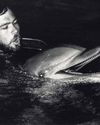
The Sea Specialist: An Interview With Bret Gilliam
Most people learn to crawl before they walk, but there is a man who learned to swim before taking his first steps. Diver, entrepreneur, writer, athlete, maritime specialist – Bret Gilliam is the complete package. Just add water.
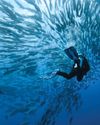
The Best Of Diving In Southeast Asia: Explore The Amazon Of The Seas
Southeast Asia encompasses the world’s most biodiverse reefs and some of the best diving anywhere on the planet. From the tiniest and rarest critters to huge fish schools and the biggest pelagics, the region has it all, and there’s something to suit divers of any level.
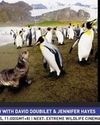
Below With David Doubilet & Jennifer Hayes
Best known for their work with National Geographic, David Doubilet and Jennifer Hayes came together to discuss their work with the youth, and, as Jennifer put it, “submerging with the emerging talent”.
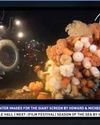
Underwater Images For The Giant Screen
Howard and Michele Hall are best known for their success in underwater IMAX filmmaking.
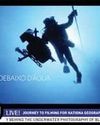
Journey To Filming For National Geographic Wild Brazil
Cristian is an acclaimed and highly versatile Brazilian wildlife filmmaker who works both underwater and topside.
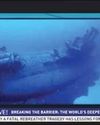
Breaking The Barrier: The World's Deepest Dive
David Strike shared a brilliant presentation about the history of deep diving and how Lt. George Wookey achieved the world’s deepest dive in 1956 using a surface-supplied rebreather.
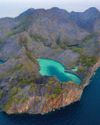
Dive the Golden Land
The Best of Diving In Southeast Asia

OFFICIAL LAUNCH OF BLUE HOPE
Top Session of the Week (14,319 (Views) / 42,831 (Reach)
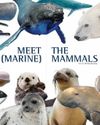
MEET THE (MARINE) MAMMALS
MEET THE (MARINE) MAMMALS

Fashion Faux Pas
What can be done to mitigate the impact of the garment industry on our oceans?